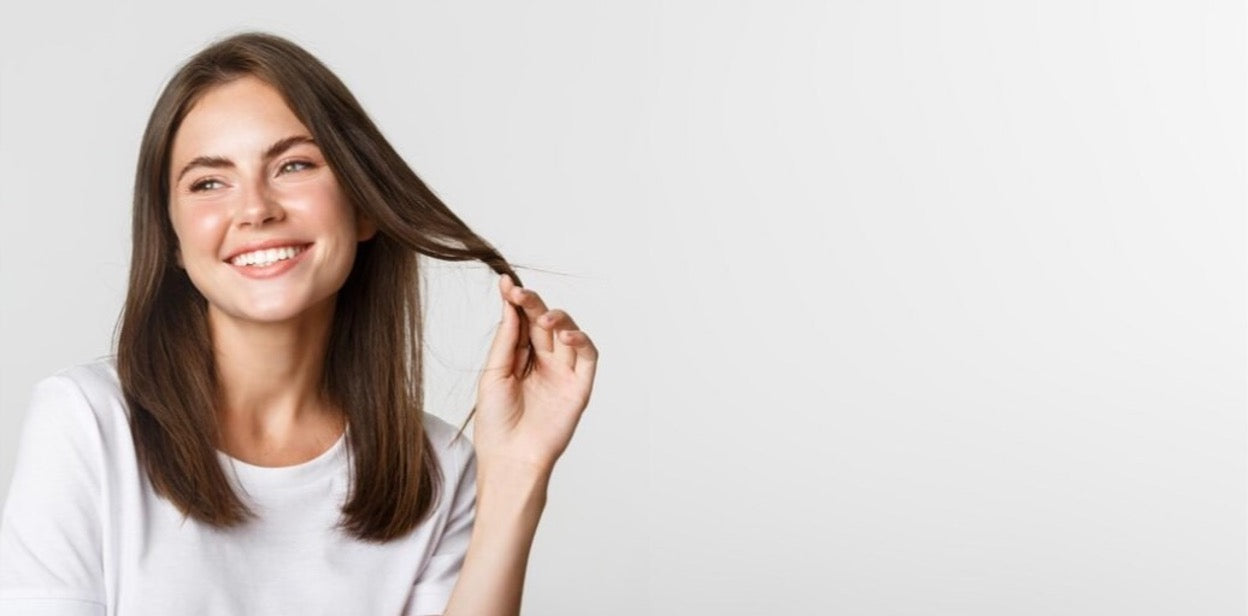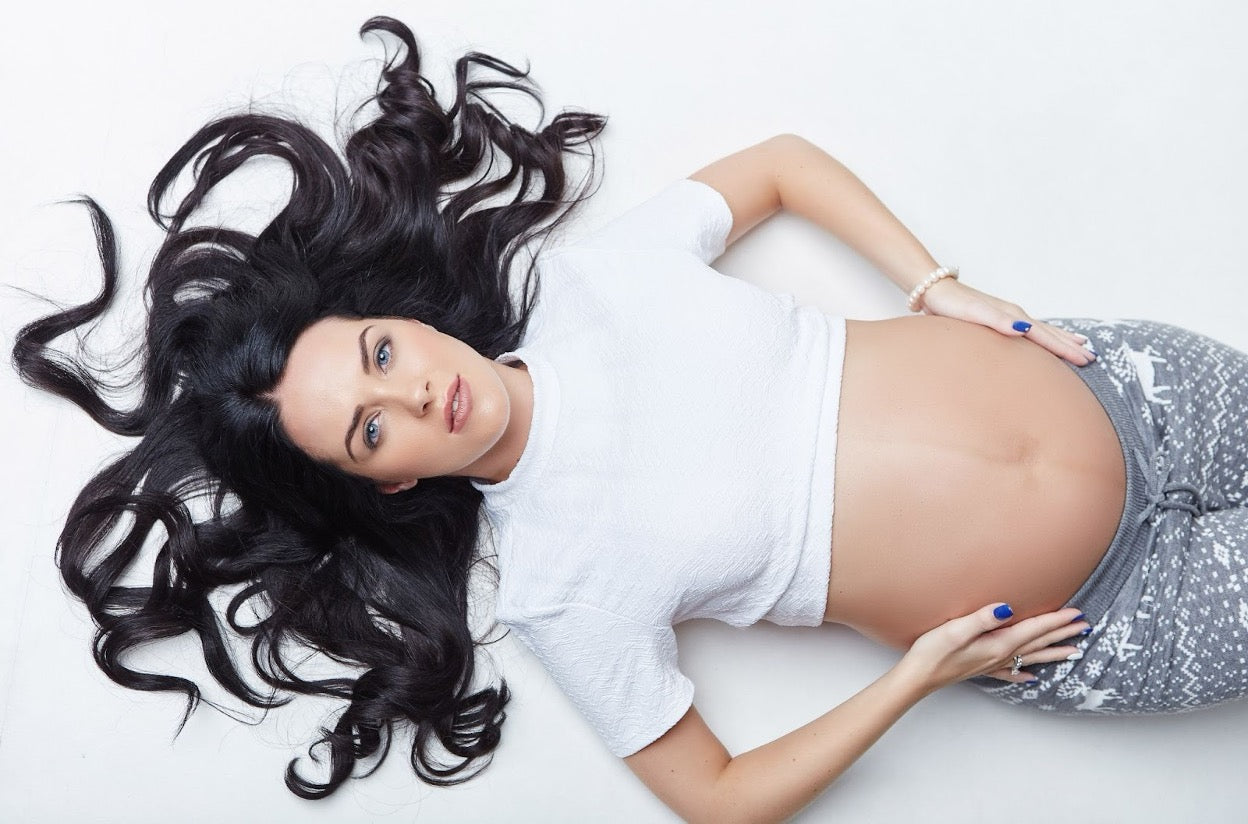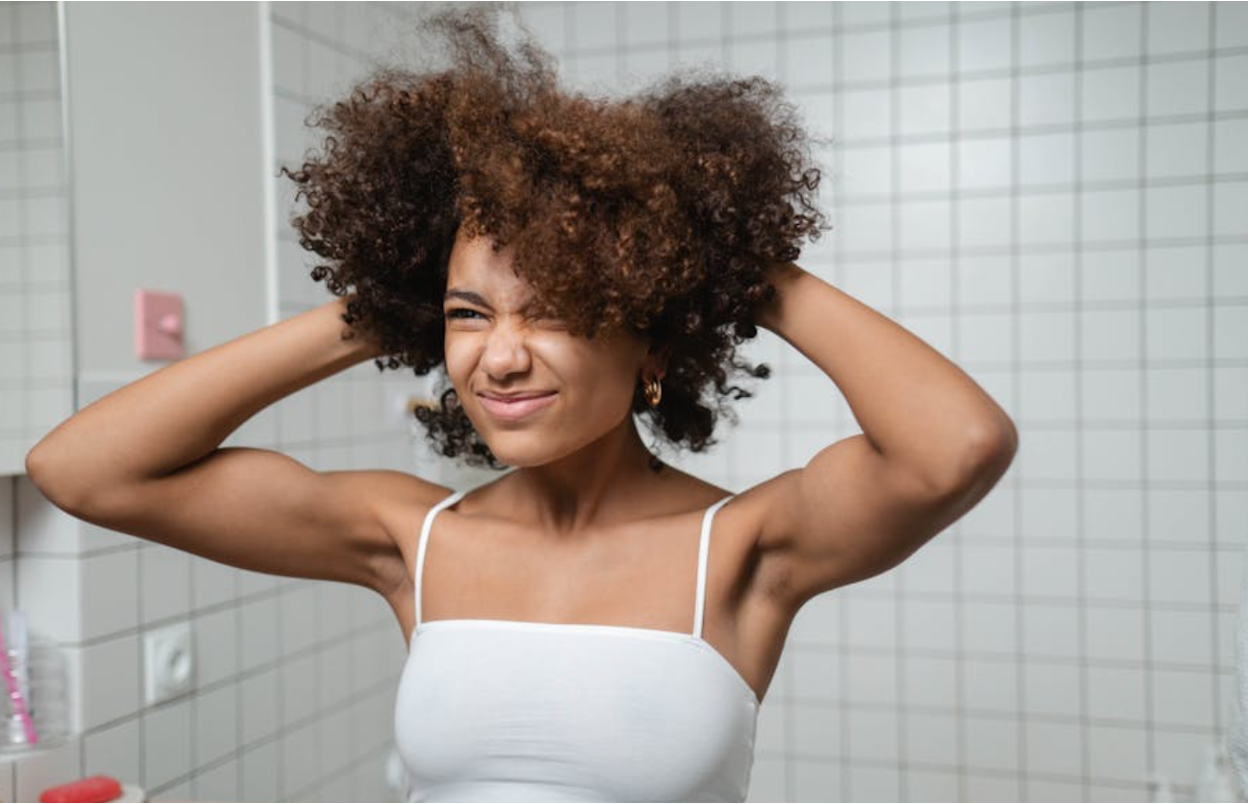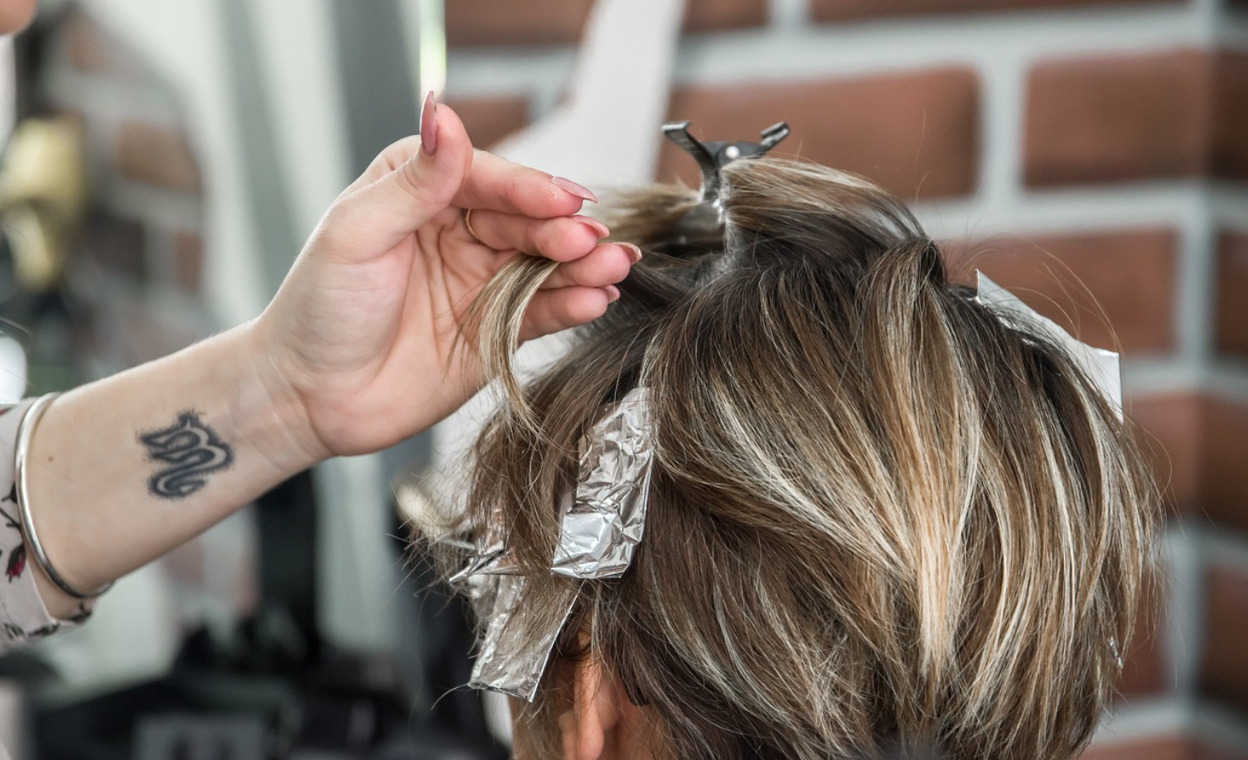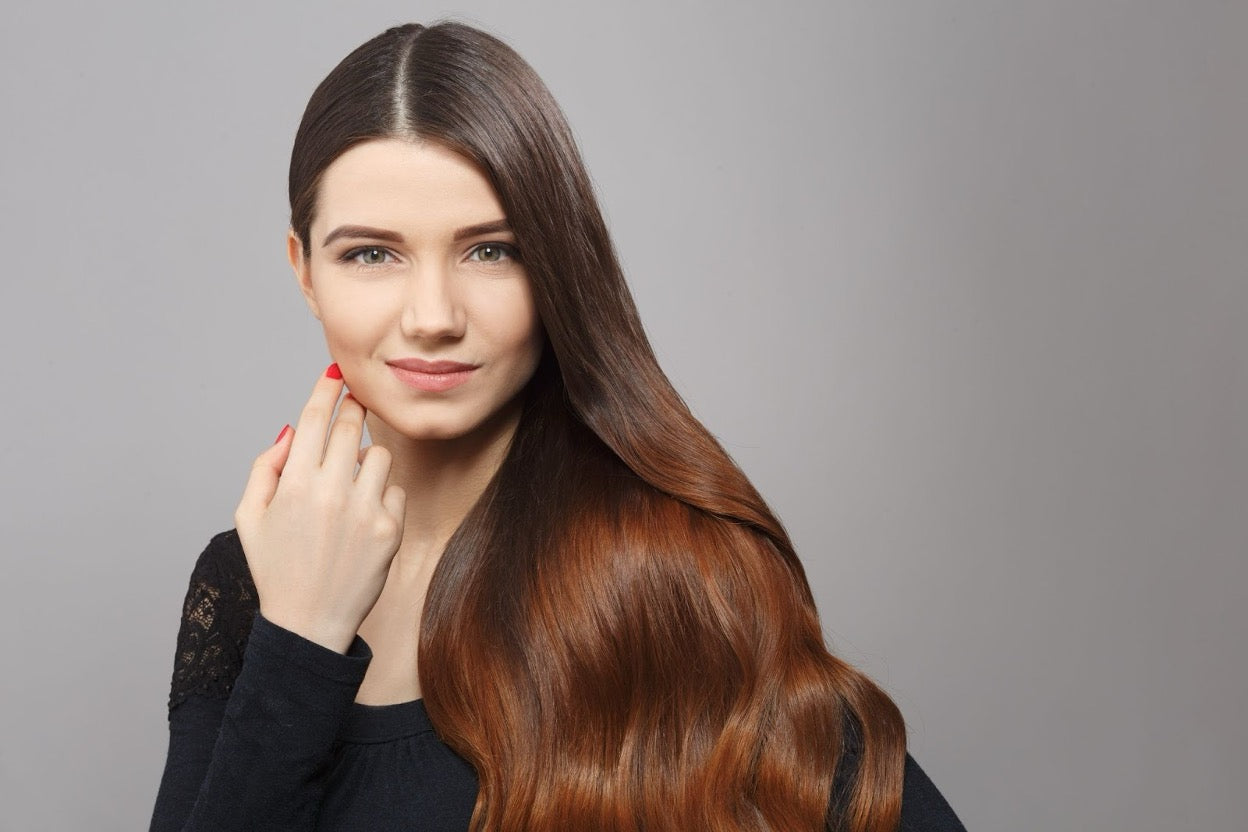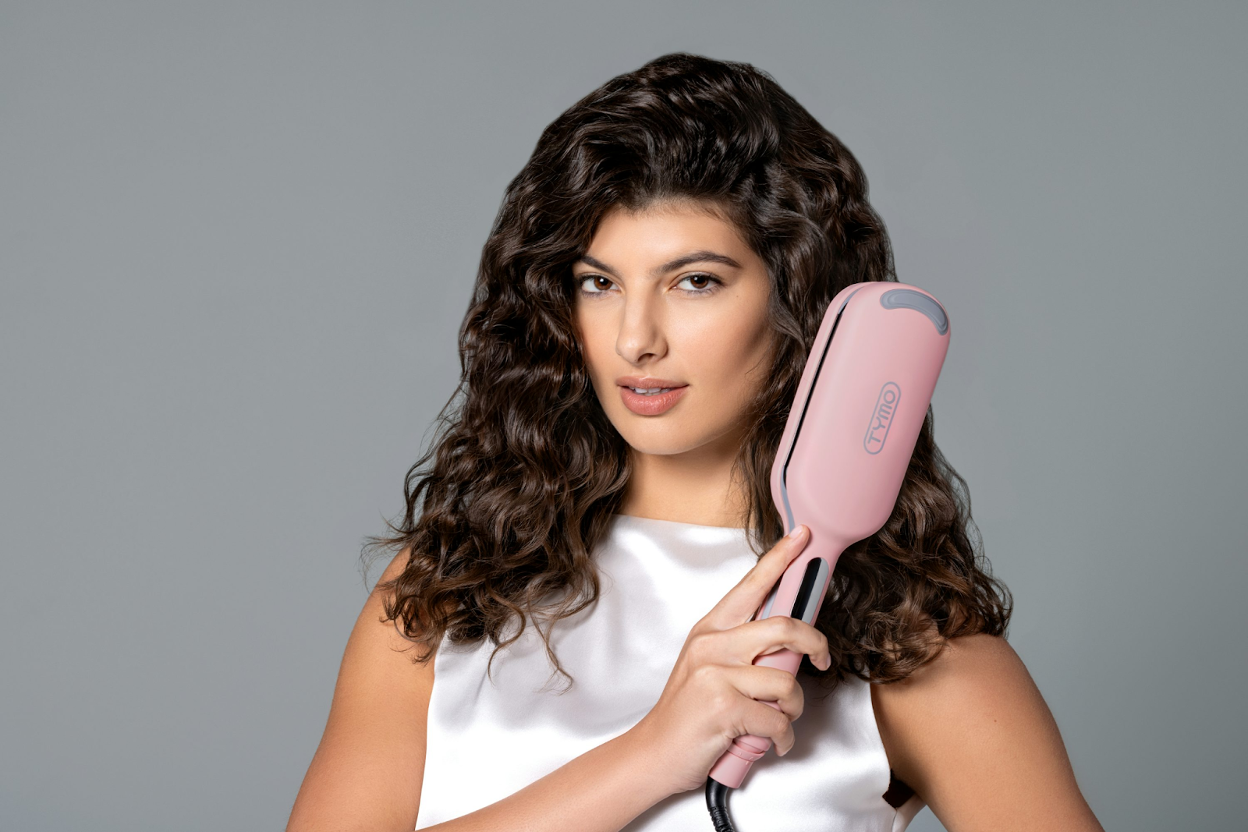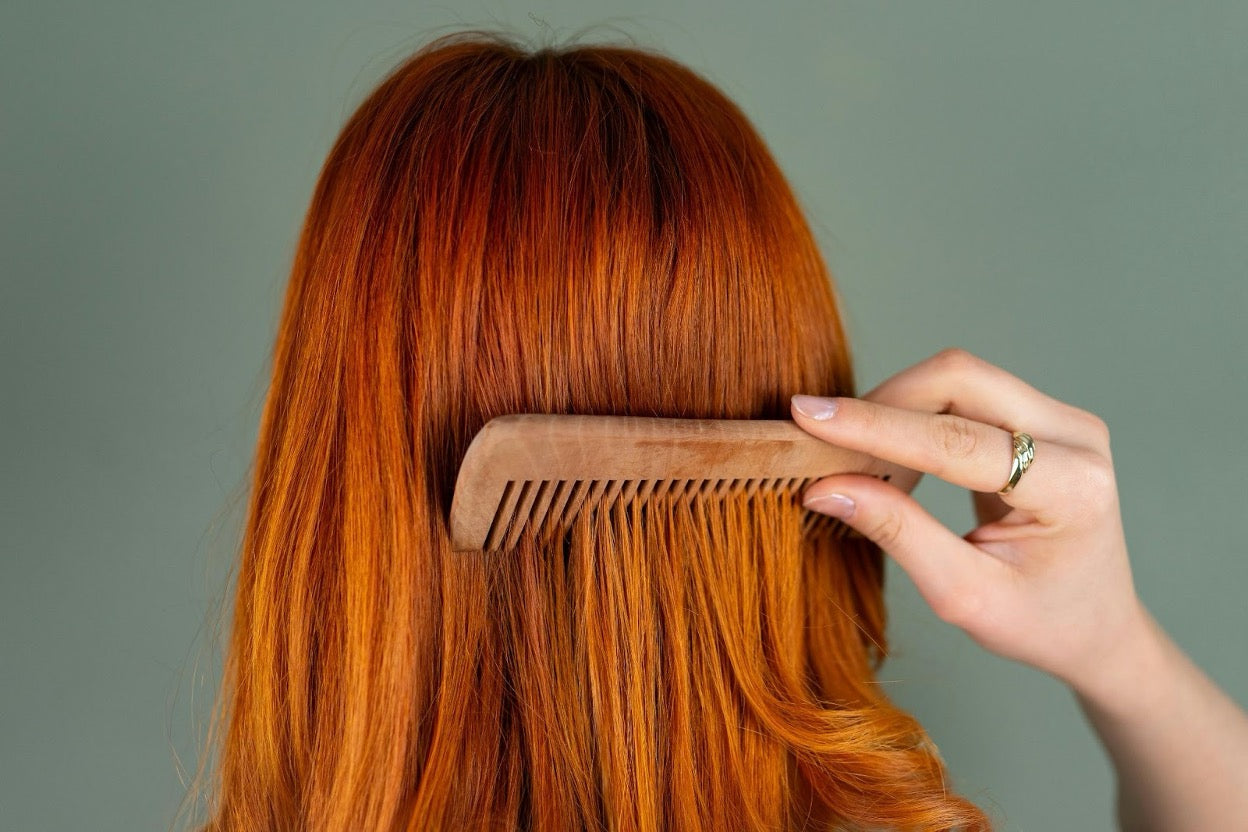Can Birth Control Cause Hair Loss: Risks & Treatment
BY TRYBELLO
May 21, 2025

Key Takeaways
- Birth control pills can cause hair loss due to hormonal changes, particularly those containing high levels of androgenic progestins.
- Hair loss from birth control is usually temporary and should stop once the body adjusts or the pill is discontinued.
- People with a family history of hormone-related hair loss are more susceptible to this side effect.
- Early identification of hair loss symptoms and consultation with healthcare professionals can lead to more effective management and treatment options.
- Trybello Hair Helper Spray is a hormone-free solution with biotin, castor oil, and caffeine that directly nourishes hair follicles and promotes regrowth for those experiencing birth control-related hair thinning.
Birth Control and Hair Loss
Birth control pills have transformed the way individuals manage reproductive health. These pills work primarily by altering hormone levels to prevent ovulation. However, these hormonal changes can sometimes lead to side effects, including hair loss.
Birth Control Overview
Birth control pills are a common method of contraception that work by regulating hormones in the body. They typically contain synthetic forms of estrogen and progestin. These hormones prevent ovulation and make it difficult for sperm to reach an egg, effectively reducing the chance of pregnancy.
Types of Birth Control
There are various types of birth control available, and not all have the same impact on hair health. Oral contraceptives, skin patches, hormone injections, and implants all have different formulations and levels of hormones. Some may have higher androgenic activity, increasing the risk of hair loss, while others are designed to minimize this effect.
“Doctor-Approved Natural Spray Rapidly Boosts Growth & Thickness.
Why 100,000+ Women Are Switching to The TryBello All-Natural Solution!"
Join over 100,000 happy customers who’ve transformed their hair with our natural, doctor-formulated spray—rated 4.8/5 by more than 40,000 real users.
Proven Natural Ingredients
- • Caffeine Extract – Naturally blocks DHT and boosts blood flow to hair follicles
- • Biotin – Absorbs directly through the scalp for maximum results—no pills needed
- • Castor Oil – Soothes inflammation and locks in deep, lasting moisture
- • Rice Water Extract – Packed with proteins and minerals to strengthen hair and reduce shedding
Get Visible Results in 12 Weeks
- • Up to 45% increase in hair thickness
- • Reduces shedding and unclogs hair-draining nightmares
- • Supports regrowth in thinning areas
- • Leaves hair soft, shiny, and full of life
Ironclad 120-Day Growth Guarantee
No results after 4 months? Get 100% of your money back—no questions asked.


★★★★★
I started using this twice a day because I noticed my hairline receding. Didn’t pay attention to track results, now my stylist told me my hair has grown a lot since my last root touch up. I'm impressed! - Bailey

Risks of Birth Control Pills
Hormonal Changes
When you start taking birth control pills, your body's natural hormone balance is altered. This can trigger a condition known as telogen effluvium, where hair follicles enter the resting phase prematurely, leading to increased hair shedding.
Progestin's Role
Progestin, a synthetic form of progesterone, is a key component in many birth control pills. Some types of progestin have higher androgenic activity, which can lead to hair thinning. Understand that not all progestins are the same; some are more likely to cause hair loss than others.
For example, pills containing levonorgestrel or norethindrone are known for their higher androgenic potential. If you're concerned about hair loss, it might be worth discussing alternative pills with your healthcare provider.
Negative Effects on People with Family History
If you have a family history of androgenic alopecia or other hormone-related hair loss conditions, you may be more prone to experiencing hair thinning when using birth control pills.
For instance, if your mother or father experienced significant hair thinning, especially during hormonal changes, you might have a higher risk of similar issues. In such cases, discussing alternative contraceptive options with your healthcare provider could be beneficial.
Identifying Hair Loss
Types of Hair Loss

Hair loss can manifest in several forms, and identifying the type you're experiencing is the first step toward finding an effective solution.
The most common types include androgenic alopecia, telogen effluvium, and alopecia areata. Androgenic alopecia, often referred to as male or female pattern baldness, is typically hereditary and characterized by a gradual thinning of hair.
Telogen effluvium, on the other hand, is a temporary condition often triggered by stress or hormonal changes, such as those caused by birth control pills. Alopecia areata is an autoimmune condition where the immune system attacks hair follicles, leading to patchy hair loss.
Signs to Watch For
You might notice more hair than usual in your hairbrush or shower drain. Your hair may appear thinner, especially around the crown or the hairline. Pay attention to any noticeable changes in your hair's texture or volume. If you observe these signs, it might be time to consult a healthcare professional to identify the underlying causes and appropriate treatments.
Treatment Options For Hair Loss
Medical Treatments
Medical treatments for hair loss often involve topical or oral medications. Minoxidil is a popular over-the-counter topical treatment that can stimulate hair growth and slow down hair loss. It's applied directly to the scalp and is generally well-tolerated. For more severe cases, a healthcare provider might prescribe oral medications like spironolactone, which can help balance hormone levels and reduce hair thinning.
Alternative Birth Control
If hair loss persists despite treatment, it may be worth considering alternative birth control methods. Non-hormonal options, such as copper intrauterine devices (IUDs) or barrier methods like condoms, do not affect hormone levels and are unlikely to contribute to hair loss.
Alternatively, you can discuss switching to a birth control pill with lower androgenic activity with your healthcare provider. Pills containing drospirenone or desogestrel are known to have less androgenic potential and may be better suited for those concerned about hair loss.
Lifestyle Adjustments

Besides medical treatments, making certain lifestyle changes and practicing relaxation techniques can also support hair health.
Maintaining a balanced diet rich in vitamins and minerals is crucial for healthy hair growth. Foods high in iron, zinc, and biotin can be particularly beneficial. Additionally, reducing stress through activities like yoga, meditation, or regular exercise can help prevent stress-induced hair loss.
Using gentle hair care products like Trybello Hair Helper Spray and avoiding excessive heat styling can also minimize hair damage and breakage. Opt for sulfate-free shampoos and conditioners, and try to let your hair air dry whenever possible.
Restoring Hair Balance with Trybello: The Hormone-Free Solution
Trybello Hair Helper Spray stands out as an innovative solution specifically beneficial for those experiencing hormone-related hair thinning. Our formula harnesses the power of three scientifically-backed ingredients that work synergistically to combat the effects of hormonal imbalance on your hair.
The biotin in our spray serves as the foundation for keratin production—the protein your hair is made of—while caffeine actively stimulates dormant follicles by increasing cellular energy at the root level. Also, our premium castor oil, rich in ricinoleic acid, improves blood circulation to follicles and reduces scalp inflammation that often accompanies hormonal fluctuations.

What makes our formula truly unique is how these ingredients are delivered in a lightweight, non-greasy spray that penetrates deeply without disrupting your hormone levels further.
Simply apply 5–7 sprays directly to your scalp daily, gently massage to activate, and let the formula work its magic while you continue your day, no rinsing required.
If you choose to switch contraceptive methods or maintain your current birth control regimen, incorporating Trybello Hair Helper Spray into your daily routine gives you a complementary approach to managing hair health.
Frequently Asked Questions (FAQs)
Trending Topics
See our latests posts #TRYBELLO


